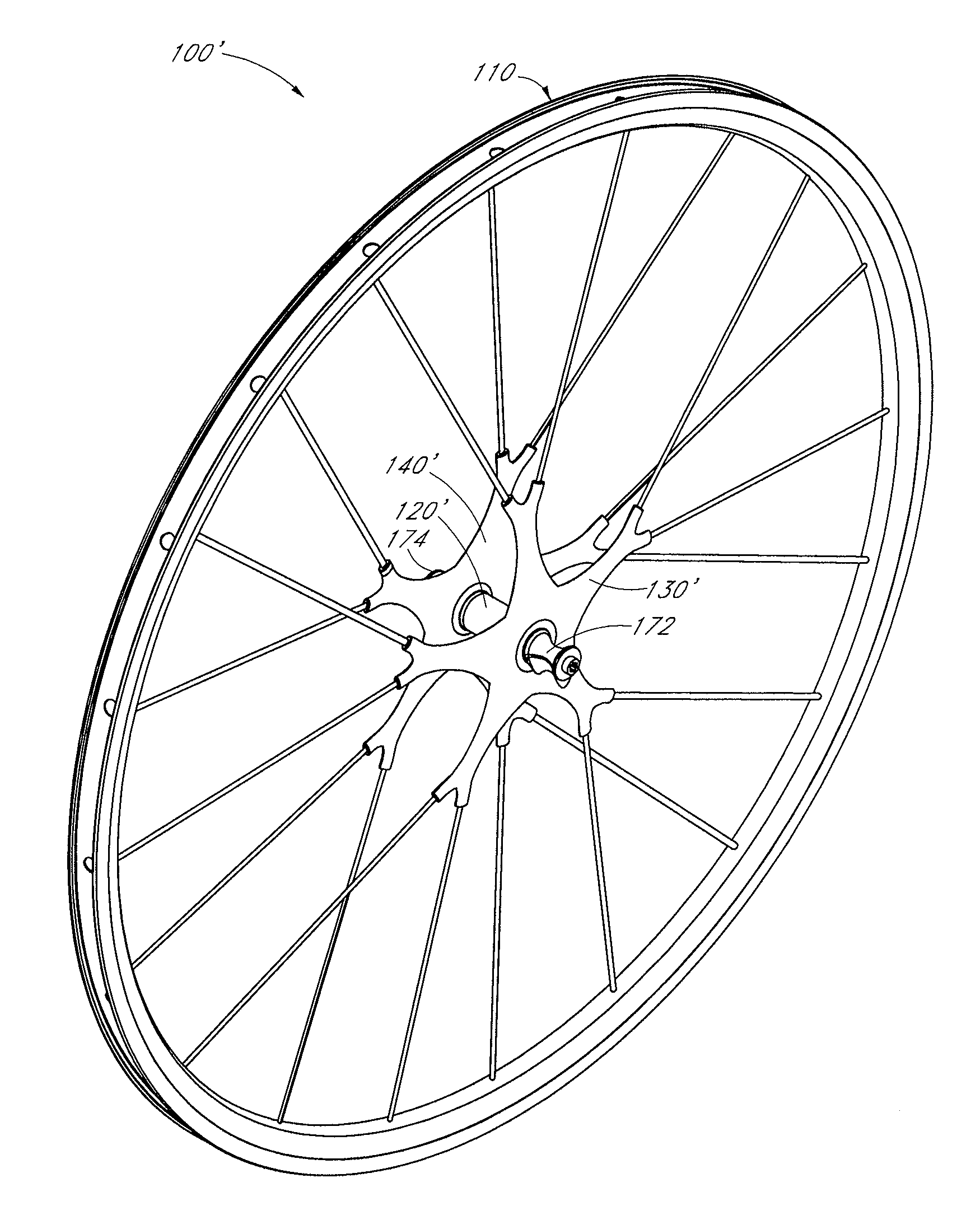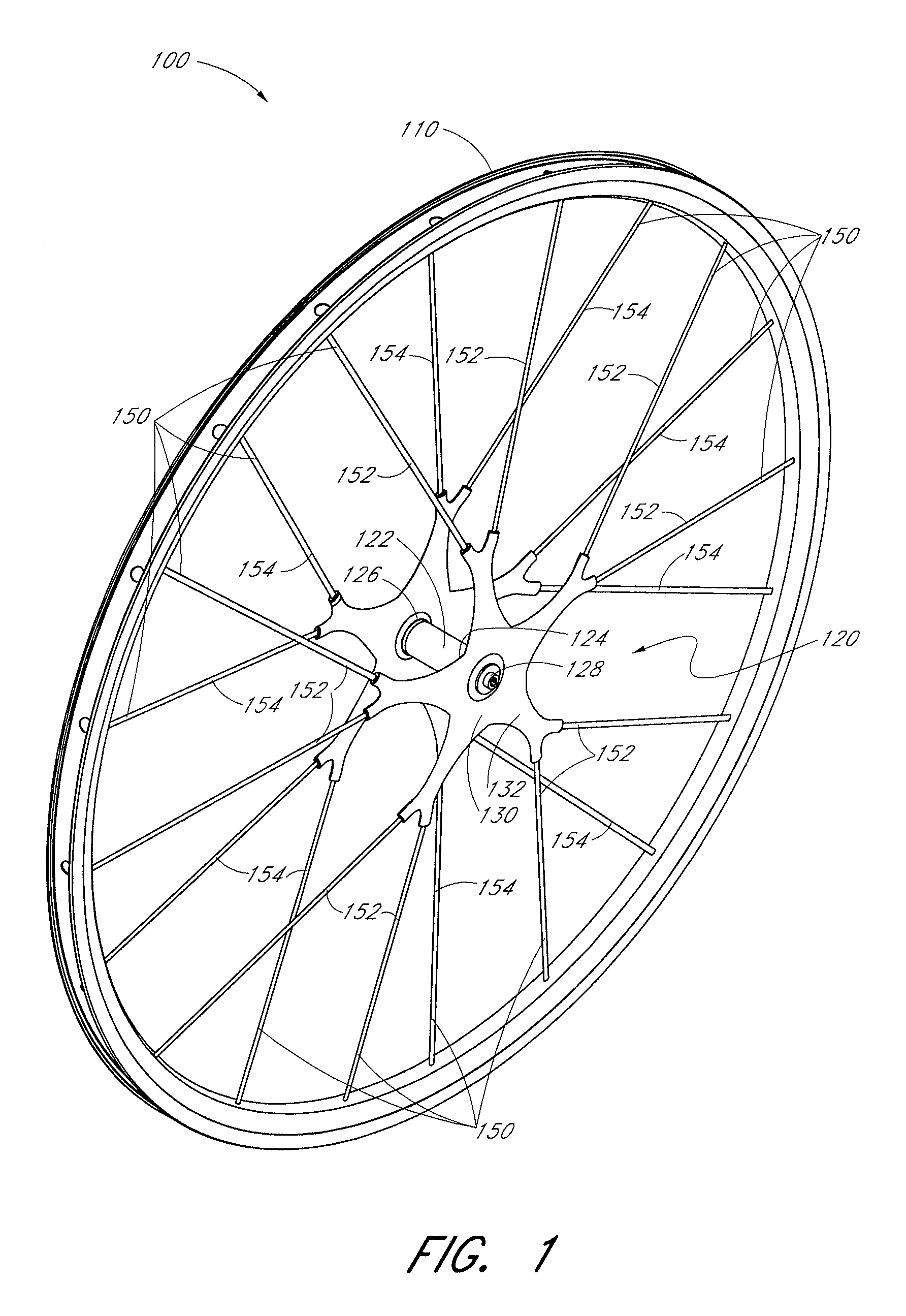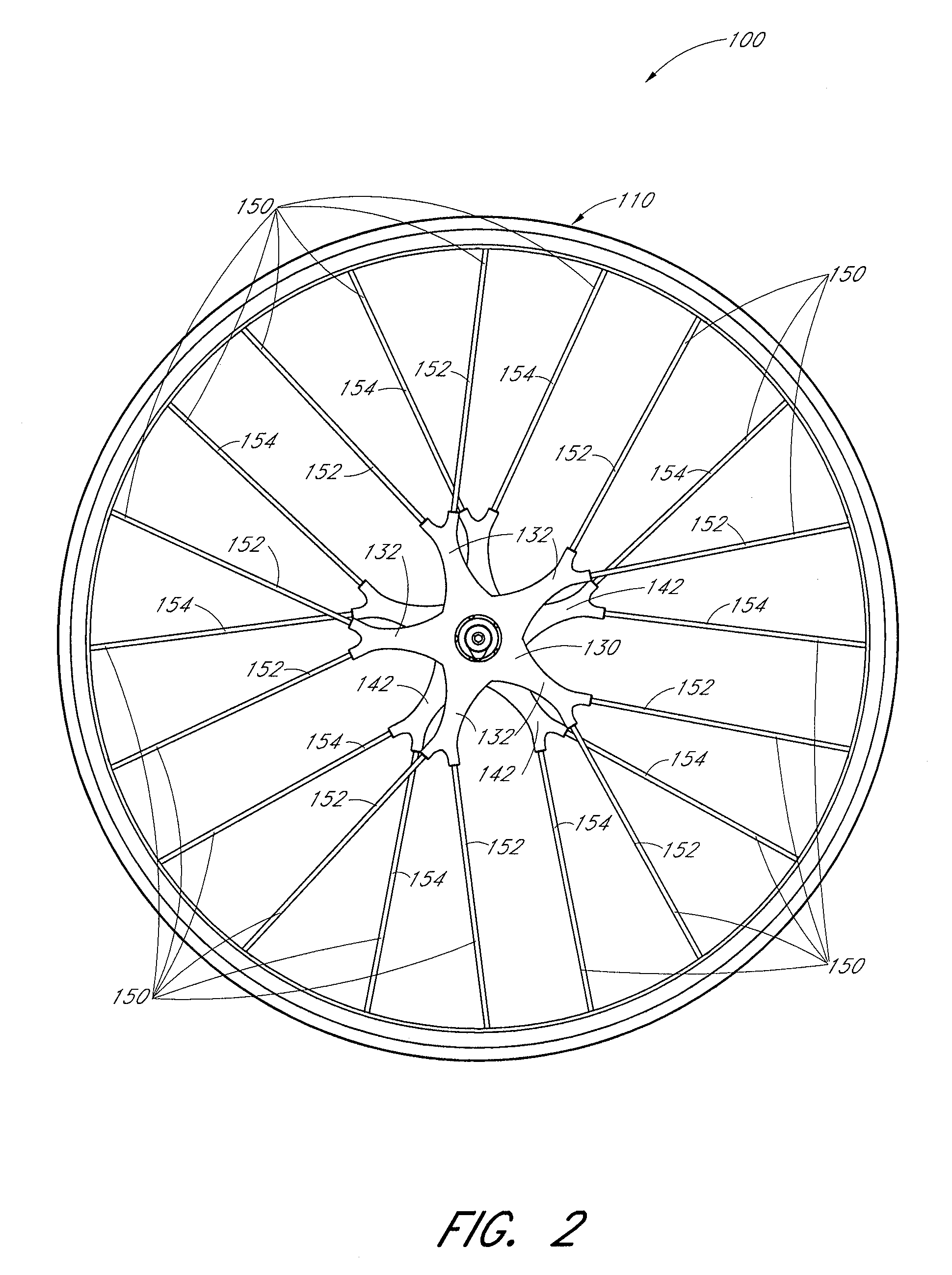Bicycle wheel and hub
a technology of bicycle wheels and hubs, applied in the direction of hubs, rolling resistance optimization, spoked wheels, etc., can solve the problems of increasing weight and increasing aerodynamic drag, reducing aerodynamic drag, and reducing aerodynamic drag, so as to reduce weight and reduce aerodynamic drag , the effect of increasing lateral stiffness
- Summary
- Abstract
- Description
- Claims
- Application Information
AI Technical Summary
Benefits of technology
Problems solved by technology
Method used
Image
Examples
Embodiment Construction
[0038]With reference to FIGS. 1-4, various embodiments of bicycle wheel 100 and hub 120 are disclosed that comprise a wheel rim 110, a hub 120 positioned at the approximate rotational center of the wheel rim 110, and a plurality of spokes 150 extending between the hub 120 and the rim 110. The hub 120 has a flanged configuration including a plurality of extensions 132, 142 from each flange 130, 140 resulting in a shorter spoke length as compared to a traditional spoked wheel 200 (FIG. 21). Advantageously, as discussed further below, the reduced spoke length increases the lateral stiffness of the wheel 100 as compared to a traditional spoked wheel 200.
[0039]FIG. 1 depicts a perspective view of a bicycle wheel 100 having a rim 110 configured to support a tire. FIG. 2 depicts a side view of the wheel of FIG. 1. Various known rim configurations may be incorporated into a wheel 100 as depicted. For example, the rim 110 desirably has a generally circular profile when viewed from the side a...
PUM
 Login to View More
Login to View More Abstract
Description
Claims
Application Information
 Login to View More
Login to View More - R&D
- Intellectual Property
- Life Sciences
- Materials
- Tech Scout
- Unparalleled Data Quality
- Higher Quality Content
- 60% Fewer Hallucinations
Browse by: Latest US Patents, China's latest patents, Technical Efficacy Thesaurus, Application Domain, Technology Topic, Popular Technical Reports.
© 2025 PatSnap. All rights reserved.Legal|Privacy policy|Modern Slavery Act Transparency Statement|Sitemap|About US| Contact US: help@patsnap.com



